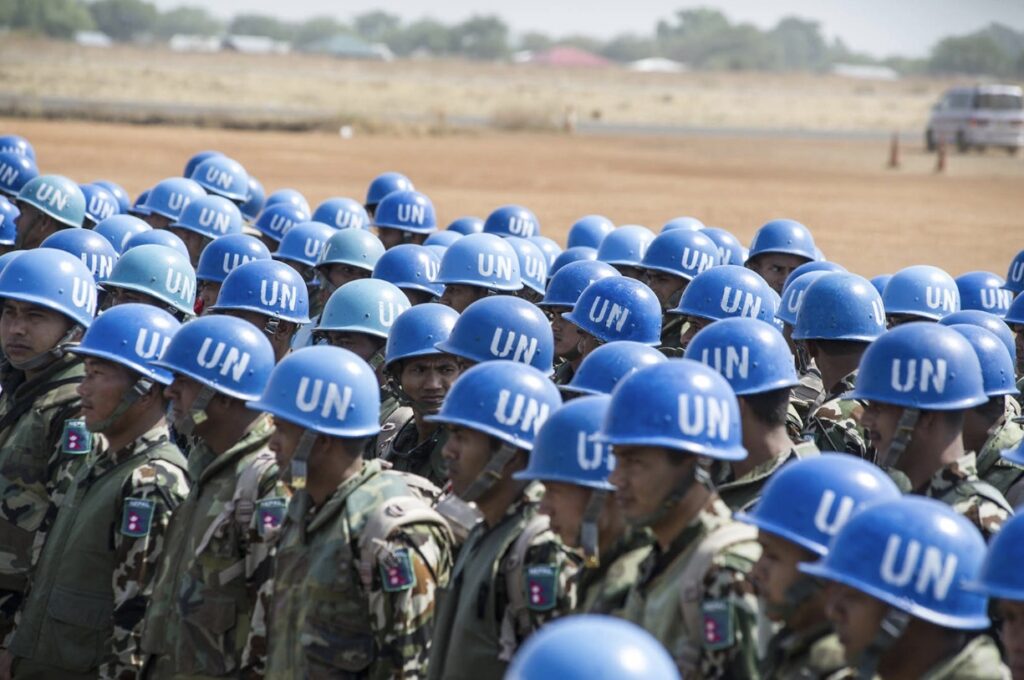Written by : Alice Tremblay
Edited by: Carly Waiz

From the conflict zones of South Sudan to those of Lebanon, thousands of United Nations peacekeepers are being withdrawn from their posts as the organization faces an unprecedented funding crisis. A 25 percent cut in its global peacekeeping operations has left missions scaling back patrols and repatriating troops, leaving civilians in fragile regions increasingly vulnerable. While this crisis may have been sparked by the United States’ drastic funding cuts under Donald Trump’s America First agenda, it is not solely an American problem. The issue extends beyond Washington; across capitals, governments are turning inward and cutting back on global commitments, thereby increasing the rate of neglect and fragility within the developing world.
Presently, the UN’s peacekeeping budget stands at roughly $5.6 billion, and yet more than $2 billion of that remains unpaid. This shortfall has forced the UN to implement sharp cuts, reducing personnel and operations across nine active missions, including those in South Sudan, the Central African Republic, and Western Sahara. Roughly 13,000 to 14,000 military and police personnel are being repatriated, alongside hundreds of civilian staff. The United States, once the largest contributor, has halved its payment from $1.3 billion to $682 million, while several other member states, such as Russia and Venezuela, have delayed or withheld their own contributions.
The UN’s financial crisis reflects a wider political reality: many governments are turning inward, prioritizing domestic agendas over international commitments. In the United States, Donald Trump’s America First policy has treated global cooperation as a burden rather than a responsibility. Other countries facing inflation, debt, and political polarization have also been scaling back aid budgets and delaying contributions to multilateral institutions. The effects of this are immediate and tangible, with peacekeepers withdrawn from volatile regions, humanitarian convoys left without protection, and fragile ceasefires at risk of collapse. This growing “domestic-first” approach weakens global cooperation at a time when instability is rising. It also reflects a gradual decline in states’ willingness to share the burden of maintaining peace, even though supporting peace abroad is not merely a matter of charity, but one of security. In an interconnected world, instability in one region can easily spill into another through displacement, extremism, or economic shock. When nations turn away from collective responsibility, they risk inheriting the very conflicts they ignore. Lasting peace demands commitment, not retreat.
All in all, the UN’s funding crisis has brought peacekeeping to a critical turning point. With forces shrinking and missions curtailed, the organization’s ability to contain conflict is steadily eroding. The cuts reveal not only a shortage of money, but a loss of faith in collective action itself. And without renewed commitment, the international community risks abandoning one of the few tools capable of containing today’s conflicts and preventing tomorrow’s wars.
